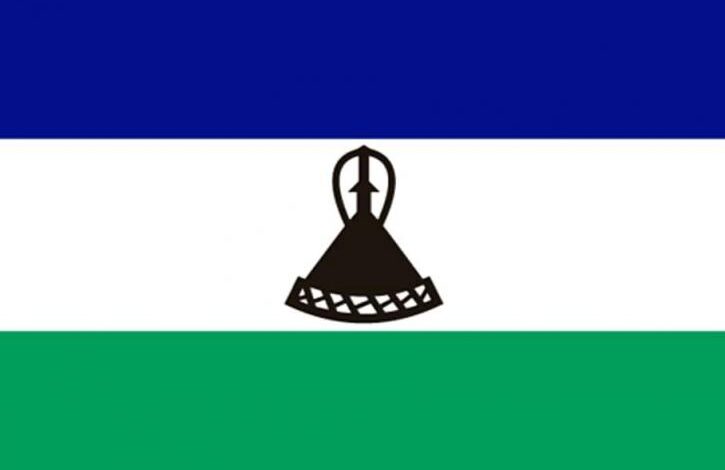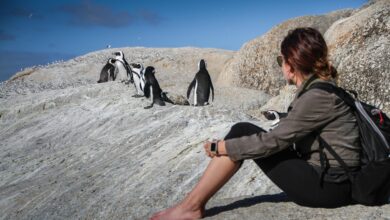Lesotho Facts, History, Culture & Travel – Africa Facts Zone
The Mountain Kingdom of Southern Africa

Lesotho is a small but captivating nation located in the heart of Southern Africa. It is renowned for its stunning landscapes, rich culture, and complex history.
This landlocked country, entirely surrounded by South Africa, is often referred to as “The Mountain Kingdom” due to its breathtaking mountainous terrain.
In this article, we will explore Lesotho’s many facets, from its historical roots to its current socio-economic challenges and everything in between.
A Glimpse into Lesotho’s Geography
Lesotho is unique in several ways, the most notable being its geographical location.
- Landlocked Enclave: Lesotho is the only independent country entirely surrounded by another country, making it an enclave within South Africa.
- Mountainous Terrain: The country is situated in the Maloti Mountains, boasting the highest peak in Southern Africa, Thabana Ntlenyana, which rises to an impressive 3,482 meters (11,423 feet) above sea level.
- Area and Population: Covering an area of approximately 30,355 square kilometres (11,720 square miles), Lesotho is home to around two million people, primarily of the Sotho ethnic group known as Basotho.
- Historical Overview: From Basutoland to Independence
The Formation of Basutoland
Lesotho’s history is rich and intricate, beginning with its formation as a unified entity under King Moshoeshoe I in the early 19th century.
- Early Conflicts: The kingdom emerged amidst conflicts with the Zulu and Dutch settlers, leading to the establishment of a distinct Basotho identity.
- Colonial Era: In 1868, Basutoland became a British protectorate due to continuous encroachments by Dutch settlers. It was later declared a crown colony in 1884.
Also Read: Ethiopia Facts, History, Culture & Travel – Africa Facts Zone
Path to Independence
- Lesotho gained independence from British rule on October 4, 1966, becoming the Kingdom of Lesotho.
- Political Turmoil: The post-independence era was marked by political instability, including a coup in 1986 and a return to democracy in 1993.
- Recent Developments: In 2022, Sam Matekane was sworn in as Prime Minister, leading a new coalition government after a series of political upheavals.
Cultural Heritage and Language
A Homogeneous Society
Lesotho is one of the most ethnically homogeneous countries globally, with over 99% of the population identifying as Basotho.
- Language: The official languages are Sesotho and English, with Sesotho being a significant part of the national identity.
- Cultural Practices: Traditional music, dance, and crafts play an essential role in the daily lives of the Basotho people, reflecting their rich heritage.
Socio-Economic Landscape
Challenges and Opportunities
- Despite its stunning landscapes and rich culture, Lesotho faces significant socio-economic challenges.
- Poverty: Nearly half of the population lives below the poverty line, struggling with limited access to basic services.
- Health Crisis: Lesotho has one of the highest HIV/AIDS prevalence rates globally, affecting its workforce and overall development.
- Education: On a positive note, the country boasts a literacy rate of approximately 81.02%, one of the highest in Africa, with a strong emphasis on universal primary education.
Economic Structure
Lesotho’s economy is primarily based on:
- Agriculture: Subsistence farming is prevalent, with many families relying on crops and livestock for their livelihoods.
- Textile Industry: The garment sector is a significant source of employment, particularly for women, contributing to the economy through exports.
- Remittances: Many Basotho work in South Africa and send remittances back home, which are crucial for the local economy.
Political Framework
Government Structure
Lesotho operates as a parliamentary constitutional monarchy.
- Leadership: The Prime Minister, Sam Matekane, holds executive authority, while King Letsie III serves a ceremonial role.
- Parliamentary System: The National Assembly is the lower house, while the Senate comprises hereditary chiefs and appointed members.
Recent Political Developments
Lesotho’s political landscape has been tumultuous, with frequent changes in leadership and ongoing calls for reform.
- Coalition Governments: The current coalition government aims to address corruption and improve governance, but challenges remain.
- International Relations: Lesotho maintains active participation in regional organizations like the Southern African Development Community (SADC) and has established ties with various countries, including the United States and the United Kingdom.
Also Read: Gambia Facts, History, Culture & Travel – Africa Facts Zone
- Tourism: The Hidden Gem of Southern Africa
Lesotho’s natural beauty and cultural richness make it a unique destination for tourists. - Outdoor Adventures: The country’s mountainous terrain offers opportunities for hiking, mountain biking, and horseback riding.
- Cultural Experiences: Visitors can engage with local communities, explore traditional crafts, and enjoy Basotho cuisine.
- Historical Sites: Lesotho is home to several historical landmarks, including the ancient fortress of Thaba Bosiu, which is highly significant in Basotho history.
Conclusion
Lesotho, with its rich history, vibrant culture, and breathtaking landscapes, is a nation of contrasts. While it faces significant challenges, the resilience of the Basotho people shines through in their commitment to education, community, and cultural preservation.
As the country continues to navigate its political and economic landscape, the spirit of its people inspires hope for a brighter future.
FAQs about Lesotho
What is the capital city of Lesotho?
The capital city of Lesotho is Maseru.
What languages are spoken in Lesotho?
The official languages are Sesotho and English.
Is Lesotho a safe country for tourists?
Generally, Lesotho is considered safe for tourists, but it’s advisable to stay informed about local conditions and travel advisories.
What are the main economic activities in Lesotho?
The main economic activities include agriculture, textile manufacturing, and remittances from Basotho working abroad.
What is the climate like in Lesotho?
Lesotho has a temperate climate, with cold winters and mild summers, making it ideal for outdoor activities.
How can I travel to Lesotho?
Lesotho can be accessed via road from South Africa, with several border posts facilitating entry.
What are some popular tourist attractions in Lesotho?
Popular attractions include the Maloti Mountains, Thaba Bosiu, and the Katse Dam.





